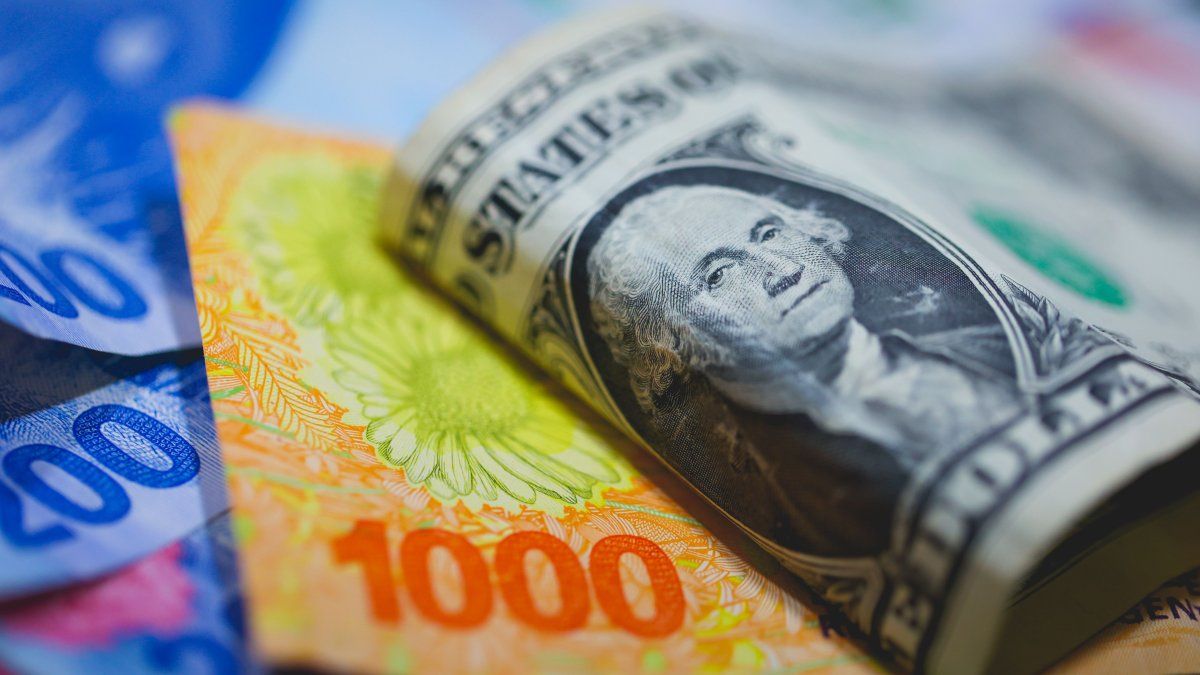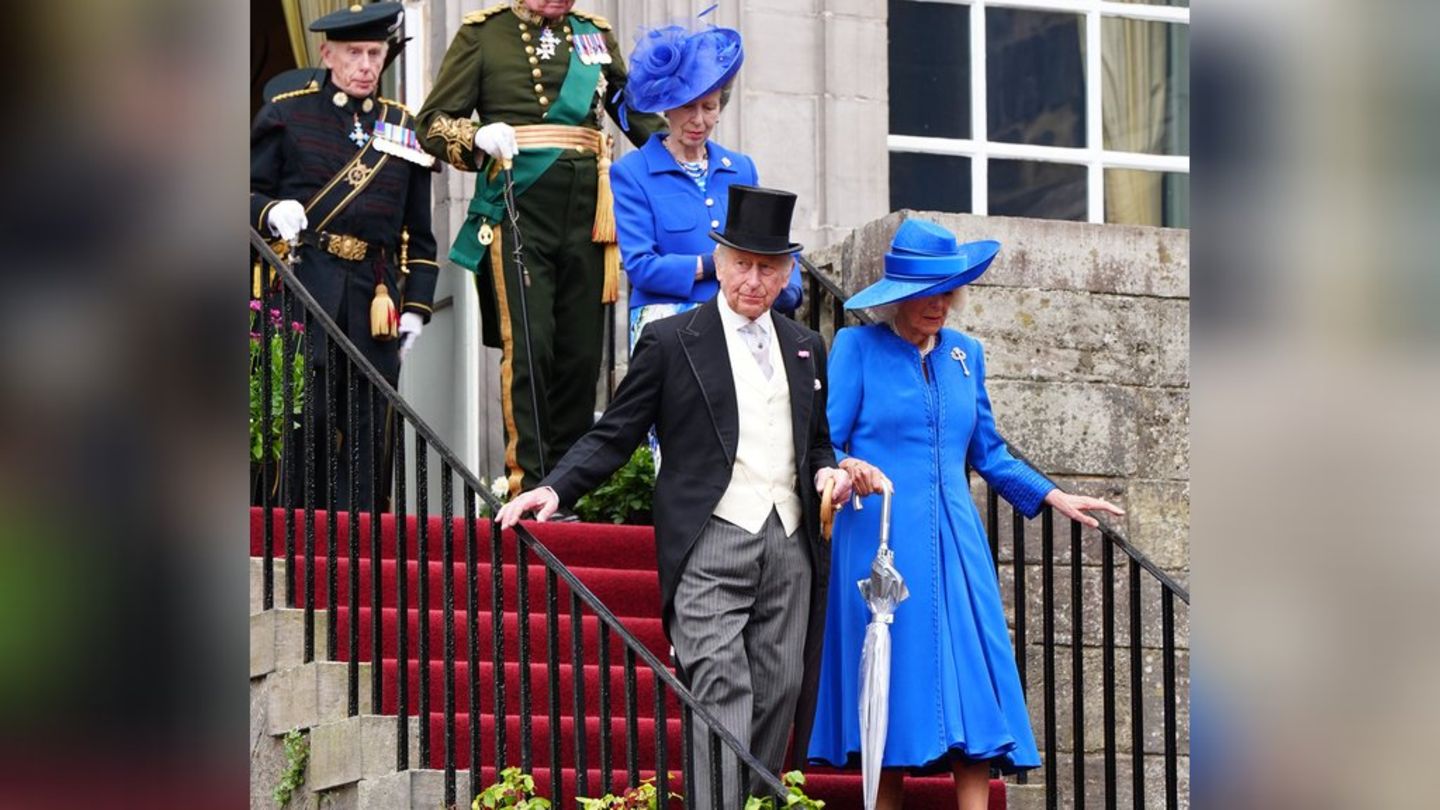There are ways and ways to get attention. He knows it. Minister Luis Caputo. For example, you can make lights up the sky, shout, raise your hand, throw flares. And that’s fine. Or, driven by desperation, set fire to the house where he lives. And if, at the end of the experiment, it turns out that no one has seen – or wanted to see – the enormous column of smoke, then they are left irremediably with nothing, there is no primary aid, and no roof over their heads.
The Government begins this week as it ended the previous one or perhaps worse: looking for a sign of encouragement from the International Monetary Fund (IMF).). The timing is not ideal: at this time, The sharp 14% drop in the Japanese stock market reflects investor panic over the Japanese central bank’s rate hike.
No one better than Minister Luis Caputo to understand what happens when a carry trade of astronomical dimensions falls apart: the bicycle breaks. With its credit lines at minimum rates, The Japanese government is involved in a gigantic $20 trillion carry trade operation. This is where the big investment funds got – and get – cheap money to place their bets in different markets such as Wall Street. The reduction of the differential between the yen and the dollar (Japan raises rates and the US prepares to lower them) will result in these big funds having to close their risk operations, that is, they will have to sell the “carry” assets to cover themselves, liquidating these assets in the market. Does this put at risk the loan that international banks designed so that the Argentine government can pay its debt? What impact could it have on the price of Argentine debt, which is considered to be higher risk?
The future of the dollar in Argentina: a version
For the reader, the data should not be minor: that is where you have to look if you want to know how the evolution of the country risk will continue, which is, without a doubt, the judge. which will decide the fate of the Argentine financial front in the coming weeksunless there is any change in the economic plan being carried out by Minister Luis Caputo. This is also relevant because the resulting tensions will mark the path that the dollar will follow.
The government is also facing an unfriendly situation that could drown out requests to the IMF. Why is country risk important? Because it represents the financial cost that the country would have to pay (in addition to the rate of the US Treasury bond) to refinance the debt in dollars that will have to be paid in the coming months. A country risk above 700 basis points implies that the government will not be able to refinance its debt at a reasonable cost for Argentina’s credit history, with the consequent tensions that will continue to accumulate.
Last week, the country risk exceeded 1,600 points, which is more than double that figure. What are risk analysts looking at? They are looking at Argentina’s ability to pay its debt in the short termwhich coincides with the rate paid by securities on the international market. The higher the risk, the higher the rate the investor demands and the lower the price in the bond’s quotation, the greater the discount.
Now, let’s ask the question again: Why is it important to look at country risk? Because in the pursuit of finding the necessary opportunity for debt refinancing, it seems that the opportunity will not come in time.. That is to say, by elimination, and due to numerous factors that would be long to list, The Casa Rosada will not be able to refinance the debt accumulated in the international financial marketswhich has decreed that the Government must expect assistance from multilateral credit organizations. So, we must ask ourselves: What does the IMF require to trigger some type of aid?
The real crux of the matter: what do each side want?
The paradox lies in this response and is, to a large extent, an emerging issue of the complex scenario in which the Ministry of Economy finds itself. To calm inflation and set a downward path, the Government has put in place a plan to reduce the exchange rate gap between the official dollar and the financial dollar. This implies using the BCRA reserves – but also the dollars that will come from the money laundering – to feed the supply of the financial market, which results in a decrease in the net number of reserves. In fact, the CCL dollar has come down from its highs and the gap with the importing dollar was again below 20%, something that, for analysts, is essential if the Government wants the market to believe that the priority is to get out of the exchange rate trap. For this reason, it is reasonable to think that the Casa Rosada is looking for inflation to be calmed quickly, so that a greater exchange rate lag is not incurred.
The paradox? That President Milei prefers to feed his popularity based on the fiscal surplus (zero emission) and the inflationary cut with a recipe that, as time goes by, distances him from the possibility of unifying the exchange rate, that is, what the IMF is asking for to assist the Government.The more intensively the exchange gap with the BCRA dollars is reduced, the greater the loss of foreign currency and the lesser the possibility of meeting debt payments, with the consequent drop in bond prices and rise in country risk. This is because what the Government wants – to lower inflation, to boost presidential popularity – differs greatly from what the IMF wants – to stop dollars from leaving the reserves. This is the unanswered question that has made Argentine assets more unstable.
Dollar, Trump and the ‘party pooper’ Claver Carone: not with me, Milei
Added to this is the influence of an idea that the Government is flirting with: the return of Donald Trump to the White House in a few months and the obtaining, through political means, of a new loan from the IMF for Argentina. But someone seems to have noticed this fantasy. Mauricio Claver Carone, one of Donald Trump’s main men in the region, left it to the government of Javier Milei. It should be remembered that it was Claver Carone who interceded with the IMF to grant Mauricio Macri the largest loan in history. “The policy of buying time by thinking that with Trump you will get more money from the Fund is an illusion, it is illogical and it will lead to failure. First, because it does not work that way. And second, Milei and Trump still have no relationship,” said Carone.last week, in an interview, bogging down Minister Luis Caputo’s strategy to avoid a jump in the exchange rate. Will Minister Federico Sturzenegger travel to Washington to redirect the relationship?
Finally, the reader should ask himself about the decisions that Minister Luis Caputo has made in recent days. There are still a few hours left to find out how many reserves the BCRA is using in order to appease the demand for financial dollars that are located in the $1330-$1350 zone, how many dollars come from money laundering or how many currencies belong to the liquidation of the dollar blend of exporters.
Assuming that the Casa Rosada is appealing for the recession to continue in the coming months and thus mitigate the possibility of increased demand for dollars from the importing complex, the financial front is wavering.
In fact, it seems that the Government is betting everything now on the repo by foreign banks and, to a lesser extent, on the dollars that would begin to enter at a faster pace from the money laundering. The commitment to the gold of the BCRA in London is a thing of the past, and the promise of “zero emission” seems to be losing its appeal – for the market – especially because the Government is appealing to this idea-force to mitigate the expectations of devaluation that are increasing and the accumulation of reserves in the Central Bank that is going in the opposite direction.
If the Casa Rosada promotes the idea that the problem is that there are “too many pesos,” investors seem to think that the real problem is that the economic plan, as it stands, is not enough to raise the necessary dollars or satisfy the IMF.so far the only key that could reduce the possibility of a debt restructuring. This reading becomes more urgent as the international scenario becomes more arid, with more expensive money in Japan, investment funds dismantling risk positions and a rise in the risk premium for countries with a credit history of volatility and default.
Source: Ambito




